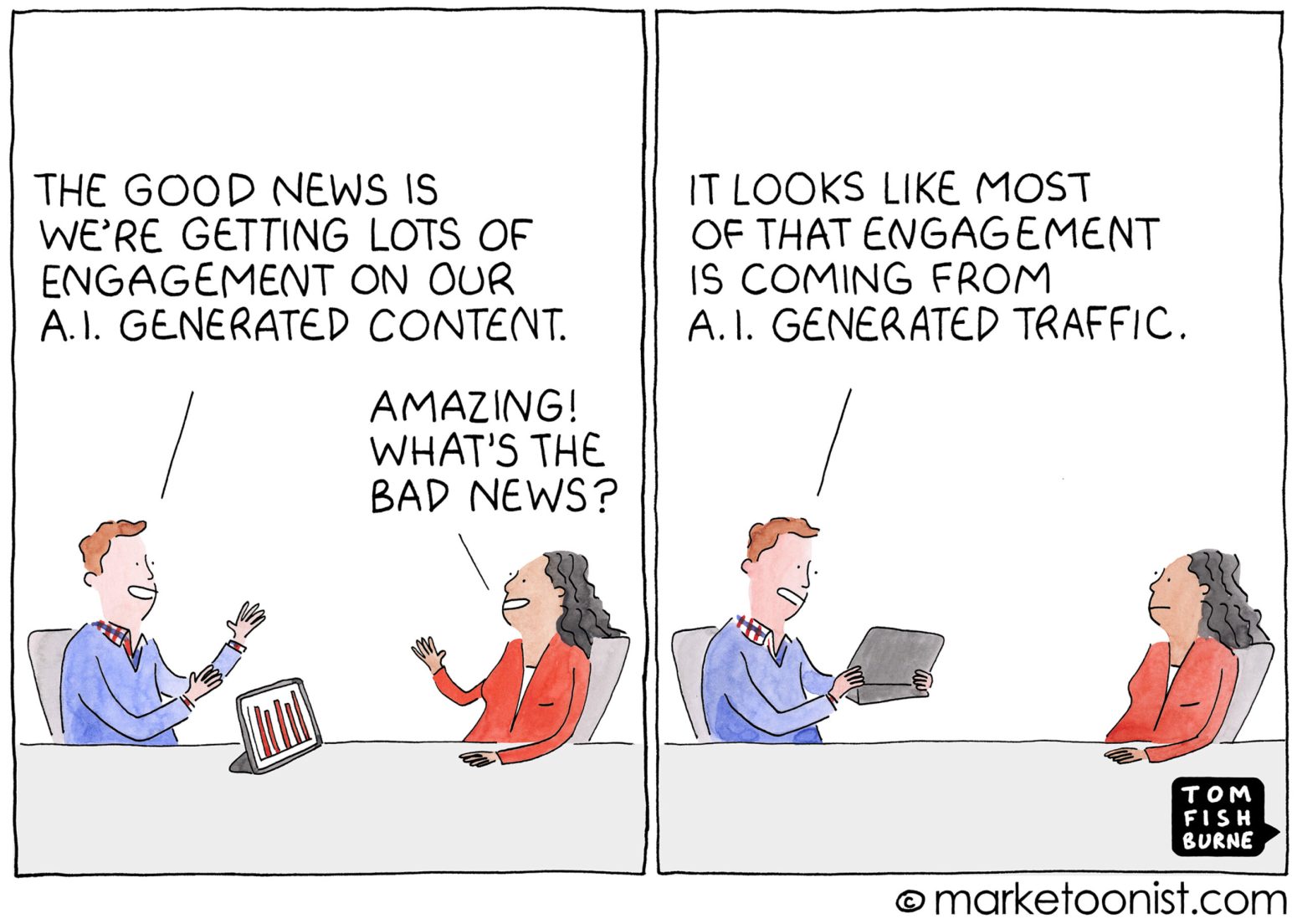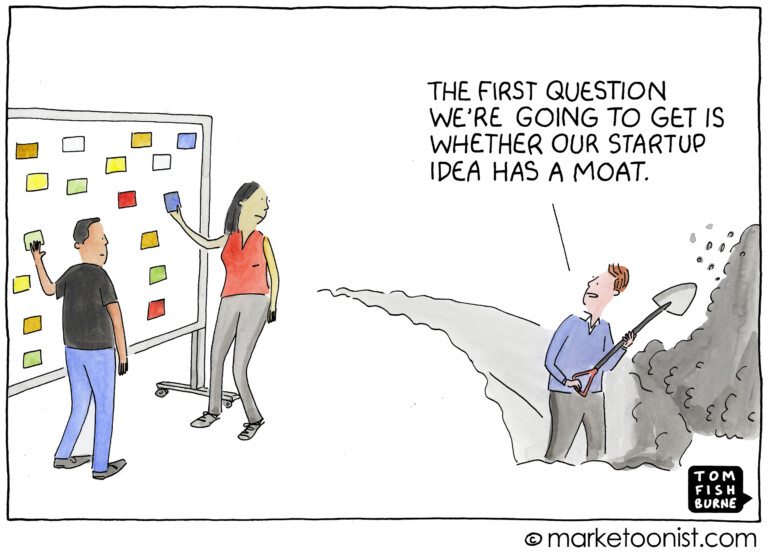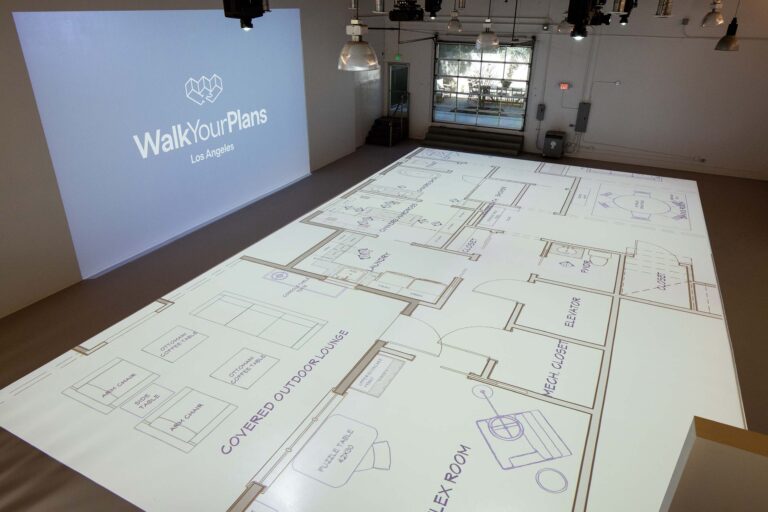Have you heard the theory?
Some call it a “conspiracy theory” but there is something compelling about the “theory” here.
Case in point, a recent report by security company Barracuda Networks states that only 36% of all internet traffic is human – the rest comes from bots.
The overarching idea here may contain some kernels of truth.
And just think – we’re just approaching the dawn of the coming AI-generated content explosion that’s about to take content creation exponential.
What is true – the system is getting easier to game.
Remember the story about the YouTube employees and “the inversion” fear? It came at a time when bot traffic was so high at YouTube that a point of “inversion” was foreseeable – a point in the future where the system would start to see bots as authentic and humans as inauthentic!
You’ve heard all about the “fake news & fake likes” rumblings – how about “fake net?”
Maybe this will awaken the social media mavens of the world as it would be quite troubling to continue to spend hours per day posting personal content when 64% of the views are bots.
But just imagine how many fake friends you can create on your social networks!
The opportunities are both endless and mindless alike!
To be serious for a moment – maybe the bigger question here is have we reached an inflection point in human communication?
I’ve always said that “communication is the most important tool in the tool case of life,” – but if most of it is being auto-generated by computers does it still count as “real” communication?
“If a tree falls in a forest and no one is around to hear it, does it make a sound?“
I dunno anymore, do you?
All this AI and bot stuff has me questioning my perception of reality!
Is it really that important?
Yoda (Google) has a lot of information.
Just the other day I typed in the proverbial question…
… “Tea or Coffee?”
And Yoda coughed up 1,130,000,000 results.
So, I decided to play a trick on Yoda and ask the same question differently…
… “Coffee or Tea?”
This time, Yoda came up with 1,340,000,000 results!
Humm.
Does this mean that there are 18.58% more coffee drinkers out there than tea drinkers, or that 210,000,000 results favor coffee over tea, or that tea drinkers are more interested in the answer to the all-important question, “Tea or Coffee?”
I dunno.
But when you think about it, Yoda commands the biggest army of bots in the history of the world and is entirely controlled by an algorithm under the influence of Artificial Intelligence.
And worst of all, every business in the U.S. is hyper-dependent on the “decisions” that Google manufacturers to make a living.
What in the world have we done here fine folks?
Maybe this will spawn an entirely new era or reality streaming shows where you have “AI Smackdowns” on irrelevant and mundane topics like “tea or coffee.”
I think this is all quite meaningless in the grand scheme of things, don’t you?
Much like today’s obsession with trying to appeal to Yoda and endless online dopamine “feel good” metrics.
Much ado about nothing I’m afraid.
Importance is relative…
…which is meaningless without context…
…in this case, “importance” can be your uncle or something considered in relation or in proportion to something else.
Thus, my conclusion:
Content is no longer king.
Context is the new ruler of this jungle.
Stay unruly fine friends and question everything…
…the truth is getting harder to find but it’s out there when you can find a real human to communicate with!






